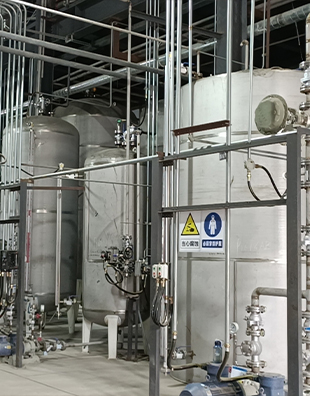hedp scale inhibitorhedp
HEDP Scale Inhibitor A Key Component in Water Treatment
In the realm of water treatment, scale formation can pose significant challenges. It can lead to reduced efficiency in equipment, increased maintenance costs, and potential system failures. One of the effective solutions to combat scale formation is the use of HEDP, or Hydroxyethylidene Diphosphonic Acid, a phosphonic acid derivative that acts as a scale inhibitor. This article explores the properties, applications, and benefits of using HEDP in industrial water systems.
Understanding HEDP
HEDP is a water-soluble chelating agent that is part of the phosphonate family. Its molecular structure includes two phosphonic acid groups, which give it a robust ability to bind with metal ions. This characteristic is crucial in applications where magnesium, calcium, and iron ions must be controlled to prevent scale formation. HEDP's efficiency as a scale inhibitor is attributed to its high stability and effectiveness at various temperatures, making it suitable for a wide array of industrial processes.
Mechanism of Action
The primary mechanism by which HEDP inhibits scale formation is through complexation. HEDP reacts with scale-forming ions, forming stable soluble complexes that prevent these ions from precipitating out of solution as solid scales. Additionally, HEDP can alter the surface properties of existing scales, reducing their adherence to surfaces and making them easier to remove. By controlling the solubility of calcium and magnesium salts, HEDP effectively minimizes scale buildup in water systems, extending the life of equipment and improving overall efficiency.
Applications of HEDP
HEDP is widely used in various industries, including
1. Cooling Water Systems In power plants and other industrial facilities, cooling water systems are prone to scale formation, which can disrupt heat exchange processes. HEDP is added to these systems to control scale and fouling, ensuring that heat exchangers operate effectively.
2. Oil and Gas Production In the extraction of oil and gas, scale formation can occur due to the precipitation of mineral salts. HEDP is employed to prevent scale in pipelines and production equipment, enhancing the longevity and efficiency of these systems.
hedp scale inhibitorhedp

3. Reverse Osmosis Systems HEDP is commonly used in water treatment processes involving reverse osmosis (RO). It helps to inhibit scale formation on RO membranes, prolonging their service life and ensuring optimal performance.
Benefits of HEDP
The advantages of using HEDP as a scale inhibitor are numerous
- High Efficiency HEDP demonstrates superior performance in controlling calcium and magnesium concentrations, significantly reducing the risk of scale formation. - Temperature Stability HEDP remains effective at elevated temperatures, making it ideal for high-temperature industrial applications where other inhibitors may fail.
- Environmental Compatibility HEDP is considered to have a lower environmental impact compared to traditional phosphate-based inhibitors, making it a preferable choice for environmentally conscious applications.
- Cost-Effective By reducing maintenance costs and downtime associated with scale removal, the use of HEDP in water treatment can lead to significant savings in operational expenses.
Conclusion
HEDP stands out as a vital scale inhibitor in water treatment processes across various industries. Its ability to prevent scaling not only enhances the operational efficiency of systems but also contributes to reduced maintenance costs and increased equipment lifespan. As industries continue to seek sustainable and effective solutions to manage water quality, HEDP's role is likely to grow even more critical in the years to come. The benefits it offers highlight the importance of adopting advanced water treatment technologies to meet the demands of modern industrial processes.
-
Understanding Polycarboxylic Acids: Properties, Applications, and Future PotentialNewsJul.28,2025
-
Scale Inhibitor Explained: How to Protect Your System from Limescale and Hard Water DamageNewsJul.28,2025
-
Scale and Corrosion Inhibitors: Essential Chemicals for Industrial Water System ProtectionNewsJul.28,2025
-
Polyaspartic Acid: A Biodegradable Polymer for Sustainable ChemistryNewsJul.28,2025
-
Isothiazolinones: A Versatile Antimicrobial Class with Industrial Power and Regulatory ChallengesNewsJul.28,2025
-
A Deep Dive into 2-Phosphonobutane-1,2,4-Tricarboxylic Acid (PBTC)NewsJul.28,2025





